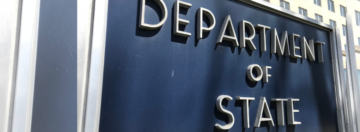Deliberate Falsification on Security Clearance Application Results in Denial
In a recent Defense Office of Hearing and Appeals (DOHA) case the original decision by the Department of Defense (DoD) to deny the applicant a security clearance was upheld by the board. This particular case involved Guidelines J (Criminal Conduct) and E (Personal Conduct). The applicant had a history of serious criminal conduct that involved unlawful wounding, stalking, DUI, probation violations, assault, and destruction of property. However, the DUI was the latest criminal offense that he had been convicted of and it occurred over 6 years ago. Had there been no other more recent issues in the case then the criminal conduct it could have been mitigated by time and rehabilitation.
Unfortunately for the applicant, it was discovered that he deliberately lied on the forms for a prior investigation completed for a Public Trust position in 2010, and did so again on the more recent security clearance application. The applicant failed to disclose all of his criminal history as was required. The board determined that his numerous falsifications precluded a finding that he had demonstrated rehabilitation. The board also noted there was evidence showing that he did not attempt to correct his falsifications until he was confronted with them in the statement of reasons issued by the DoD.
The Moral of the Story
What is the moral of this story you ask? Be truthful and honest in answering all questions on government forms and you will have a better chance of overcoming any issues that may be of concern. In today’s security clearance environment deliberately concealing information or exhibiting a lack of candor is an issue taken very seriously and is hard to mitigate.



Comment Archive
Greetings,
I have been reading your articles about getting a clearance and the factors that may prevent you from getting one. I was wondering, since I am interested and in the process of joining the Naval Intelligence community, does having parents who are not U.S. citizens automatically disqualify an otherwise qualified applicant for a position that requires a Top Secret/Sensitive clearance?
I will be going to MEPS and don’t want to get my hopes up if this factor -which is out of my control – will negatively impact my chances of going for the career I want. Any tips for talking to the interviewers at MEPS about this sensitive issue?
Thanks,
Eva.
It is not an automatic disqualifier for TS, but is definitely something that will be looked at as a concern. If you were to need SCI access however, it will probably result in an agency declining to grant you access. For the TS, a lot will depend on the country of their citizenship, where they live, and if they live in the U.S., why have they not applied for U.S. citizenship yet. There are hurdles to overcome, but it can be done.
My secret clearance expired during my transition by one month. I resubmitted my SF86 at my new location for my Secret clearance. In the past couple of years I have divorced and remarried a foreign national (Thai). I received a call for an interview which has never happened to me before and wonder if this is normal. I am in the process of finalizing the i-130 so she can apply for a Visa and ultimate citizenship. Not sure why the interview but was also told to bring my passport, I assume to take a look at my foreign travel. Not sure if this is a big deal or not but it has me curious as to why the interview.
Any potential security clearance holder who sponsors a foreign national for entry into the U.S. and/or citizenship is considered a concern under foreign influence/foreign preference. It is not unusual for interviews in these types of cases. Advise you brush up on the details of your wife’s and her relatives’ employment and associations in order to answer the security interview questions.
Other than having one’s security clearance denied, what are the typical consequences of falsifying information on a security clearance application?
Typically it depends on who you work for. It could result in termination from employment or transfer to another position that doesn’t require a clearance. If you read the fine print on the SF-86 it states you could be subject to criminal charges and/or fined, but I have never heard of that happening.